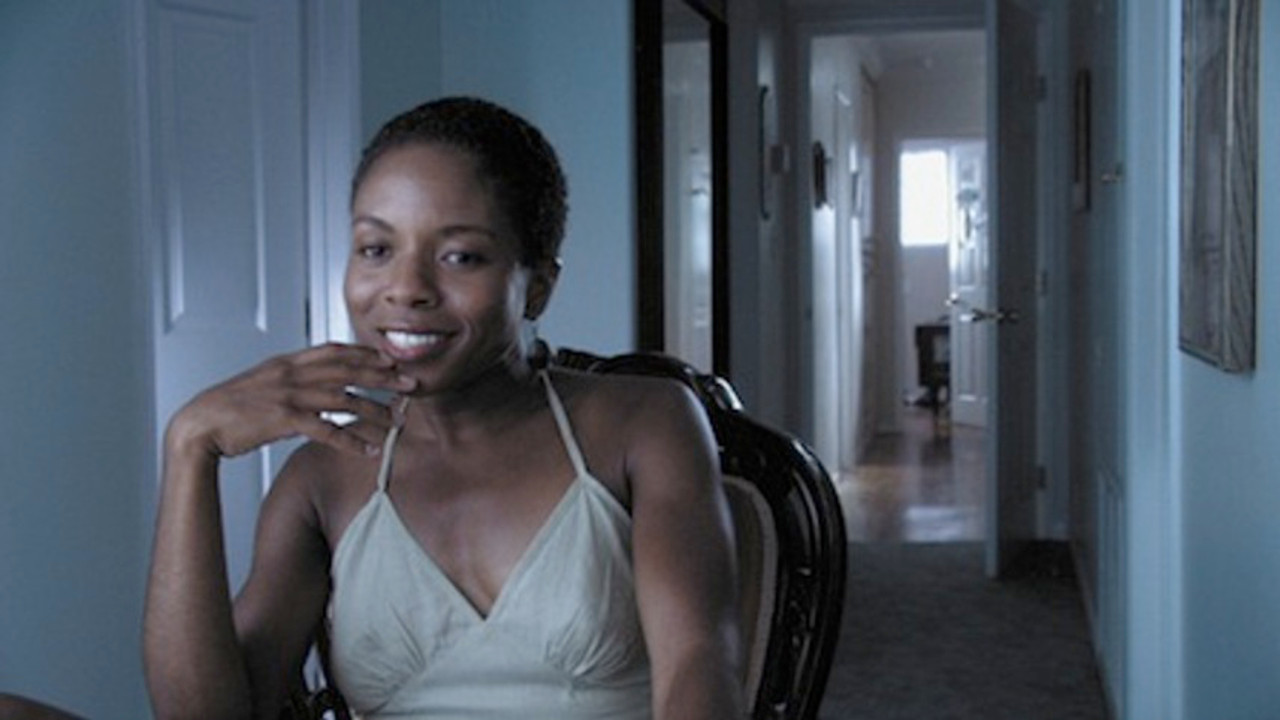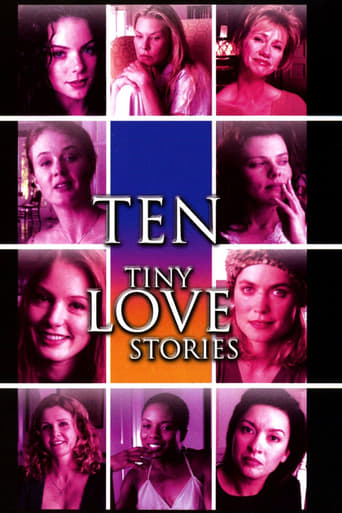

I gave this 5 stars for the five monologues that I did enjoy the most. There are two or three really good performances in this, particularly Lisa Gay Hamilton, Kathy Baker, and Rhada Mitchell in a too-short piece that leads off. The rest are either adequate (Kimberley Williams, Alicia Witt and Rebecca Tilney), or less-than-adequate, and a few just plain bad like Deborah Unger (tremulous and melodramatic). A real clunker for me was the morbid, over-the-top, deadly dull story from Elizabeth Pena's monologue which is also way too long, on top of which she doesn't do it well at all.Hamilton's monologue is probably the best-written of the ten, the finest balanced including deep humiliation with a willingness to confide this without resorting to bathos. Most I found merely self-conscious and stagy with a tinny theatricality that made the person speaking sound so forced and unconnected to reality that I lost contact. This happened especially in Pena's long, drab monologue about a distinctly unhappy marriage. Why Garcia felt the need to stretch this one out like he did I have no idea, but I finally fast-forwarded (turns out I was two seconds from the end of it anyway) and got to Baker's which restored some freshness and balance and gave a better ending to the proceedings (it's wonderful to see an actor with the skill and confidence of Baker simply step into the role and wear it instantly with a minimum of fuss and affectation (certainly one of Ms. Unger's problems)). I don't know if Garcia has a problem with marriage, relationships, or women, but he has an axe to grind somewhere. He has done other ensemble pieces with some of the same women. It seems to be his specialty. While I am a man, I am one who enjoys a good chick flick (Muriel's Wedding, for instance), and I'm not saying that I didn't enjoy Ten Tiny Love Stories. I did, but it was definitely uneven and weighted to the negative side in overall quality.I think the women were given a bit too much freedom in their interpretations so that some of the less-skilled among them, like Unger, struggled to find the pitch. She just keeps coming apart at the seams during hers leaving herself nowhere to go to modulate her performance. Depending upon the length of the piece, Unger seemed to run out of space and yet sounded so constantly on the brink of disaster emotionally, that it began to sound like a pitiful whine long before it was over. And finally, I felt that some of these monologues were not true in the sense that they had a phony feel to them. They sounded like they were supposed to be candid but they came off stilted. For the three of four good pieces, it's certainly worth the effort.
... View MoreI'll tell you. The thought of watching 10 woman talk about personal moments in their lives didn't sound too enticing. Especially when it was going to be recorded as a dead-on monologue with static camera, etc. Nonetheless, Rodgrio Garcia (THINGS YOU CAN TELL JUST BY LOOKING AT HER, NINE LIVES) exceeded my expectations with his vignette film TEN TINY LOVE STORIES. Although some of the monologues are better than others, it is truly a showcase of great writing/acting. My favorite was Kimberly Anne Williams recalling a trip to Greece and her interesting encounters. However, it is also hard to forget Garcia stand-by Kathy Baker discussing lost love and life moving on. Check this one when you're feeling contemplative.
... View MoreI discovered this movie on IFC, and I thought it would be interesting. For "tiny" love stories, some of the stories really dragged on in this movie. The fact that none of these women had names almost makes you suspect that the actresses were talking about their own real sex lives, including Kathy Baker and Alicia Witt. I have to admit, I want to start seeing some more romantic views of first sexual encounters again, like in "Strike!(1998)," when Odette Sinclair's acquaintances started asking about her presumed first time, and Tweety asked "Was it beautiful?"Some might think re-enactments and flashbacks would improve this movie. I think it would make things even worse. It doesn't necessarily have to be hardcore porn to get my attention, but somehow I just expected more.
... View MoreContrary to another reviewer, I think that this is WELL-written, especially the more fictional it is, because greater imagination would be required; and well acted, because there were no other characters with whom to share the focus of these dozen-minutes-plus, well-done monologues. But I'm just not entertained by such solemn, pious rememberances. Everybody has a story to tell and some are more interesting than others. Everybody has problems and some are more intense than others. These are just ten, not-very-atypical stories and problems, exemplifying how anybody's life (or part of it) is fodder for film. Then again, I think poorly of TV's reality shows, too. So, if that's your bag, you may like this. It's the kind of stuff that would make for good 'phone and/or internet gossip; but absolutely without other-than-verbal action. And, although each of the speakers is female, I'm gonna leave gender outta this.
... View More